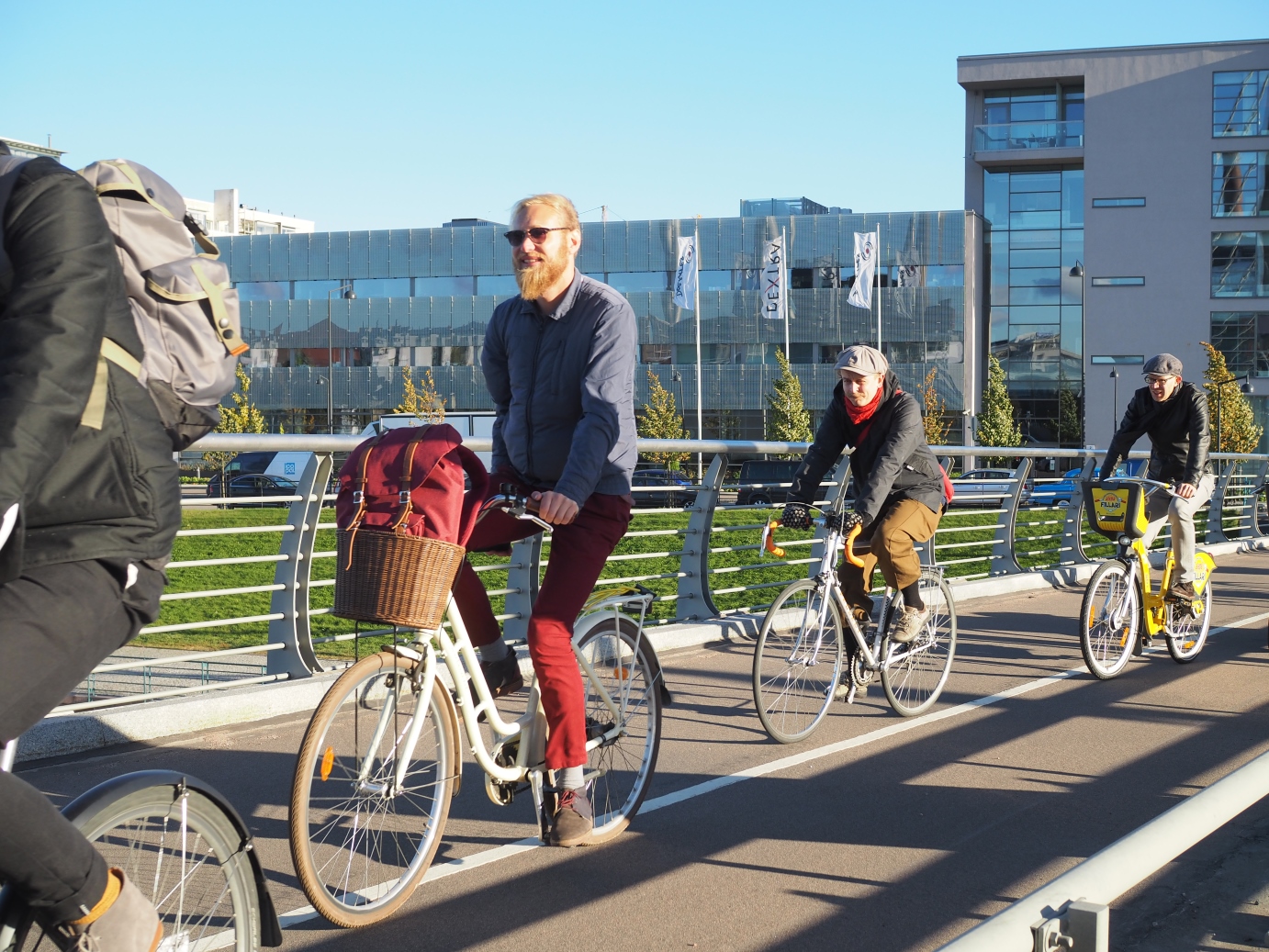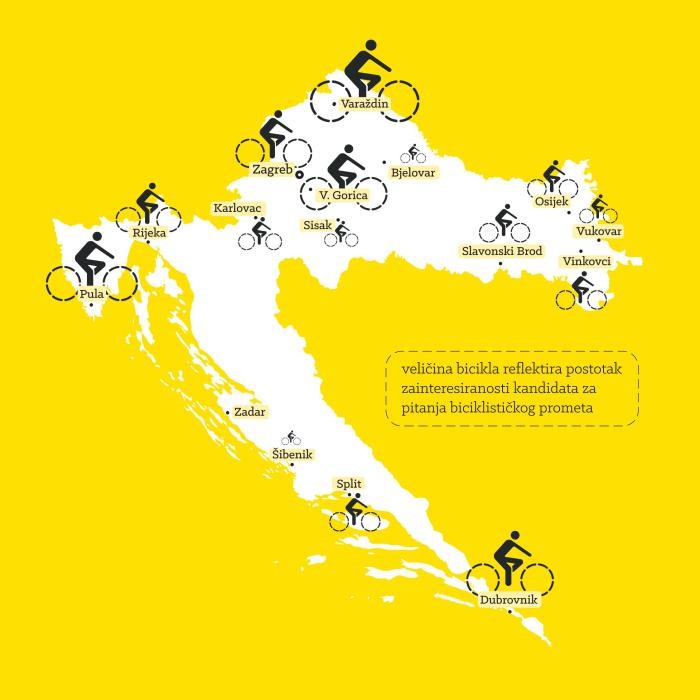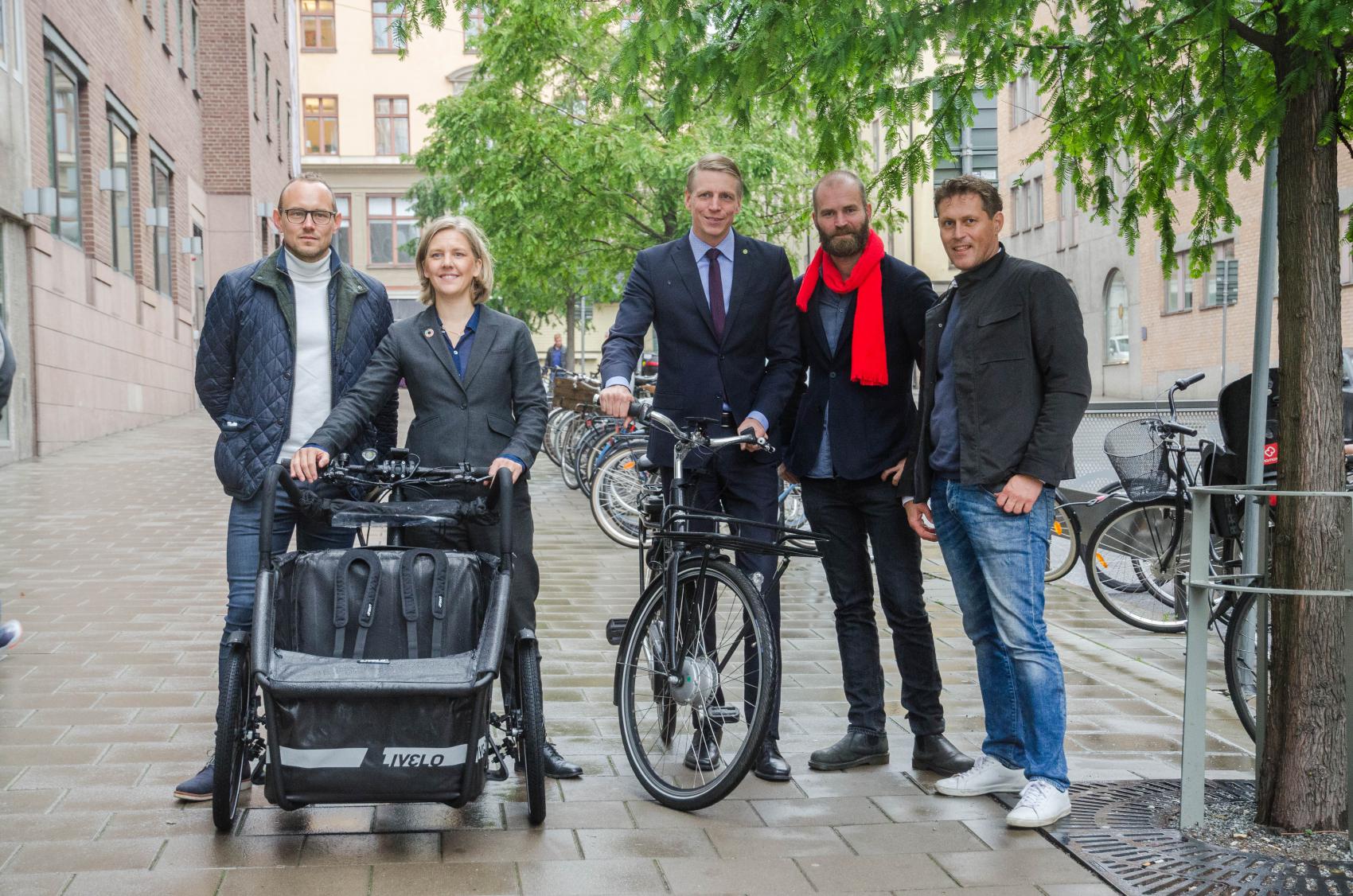
ECF Leadership Programme Success Stories 2016-2017
The Leadership Programme supports future leaders in cycling advocacy and aims to support organisations through a transition – in structure, in resources or in effectiveness. It recognises that at some periods in the life of an organisation there is an opportunity for change and this can be quicker, faster and more successful with an injection of support. That means the chance to work with other people, to share ideas or just have independent friends to lean on.
Together with a grant secured by ECF’s industry partners, the Cycling Industry Club, the participating organisations of the Leadership Programme received extensive training on organizational development, political campaigning, strategic planning, fundraising and coalition building for a stronger national advocacy. Here are some examples to illustrate the achievements of its members:
SWEDEN
ECF’s Swedish member achieved a multi-million government funding for e-bikes. The Swedish Government has presented a budget for 2018 that includes a 25% subsidy for all e-bike sales to individuals in Sweden until 2020. For the development of e-bike sales in Sweden this is a spectacular success. This can be seen as the new benchmark for all European countries to follow, thanks to the advocacy work of cyclists’ association Cykelfrämjandet (Full Story).
SPAIN
For the first time ever, Spain developed a National Cycling Strategy Plan. Our member ConBici did a great job by attending countless technical meetings of the government. Furthermore, they worked hard on a National Cycling Strategy Plan, which was finally being drawn up by the government of Spain.
SLOVENIA
The Slovenian Cyclists' Network (SCN) managed to put cycling on the Agenda of the Ministry of Infrastructure. This resulted in the opening of new long distance cycling routes as well as assuring conditions for the development of Eurovelo Routes 8 & 13. Furthermore, close collaboration with Ministry's Office for Sustainable Mobility and National Focal point for cycling (established for the first time in history) resulted in the update of standards for designing a higher quality cycling infrastructure. Members of SCN also made a great effort on local level and contributed significantly in the processes for preparation of the SUMP's (covering 20 mayor Slovenian municipalities). Using an established network, SCN managed to connect researchers, Ministry representatives (Economy & Tourism and Infrastructure) and the National Road Agency to update the Masterplan of National Cycling Infrastructure Network. This plan focuses on the functionality of cycling infrastructure in terms of development of long distance cycling routes and development of cycling tourism.
CROATIA

Cyclists' Union, together with Greenpeace Croatia and Green Action/FoE Croatia organised a protest bicycle ride in Zagreb for the first ever climate change protest in Croatia. Around 1500 cyclists participated in the ride, which marked the beginning of a series of global “Break Free from Fossil Fuels” movement events. The union also certified the first ever cycle-friendly university faculty, and Ericcson Nikola Tesla as the first cycle-friendly company.
In 2016, the organisation used the local elections to prepare a questionnaire on cycling and urban mobility for all mayor candidates in the 16 biggest cities in the country. One of the successes was a positive response from local politicians. The biggest milestone was in Zagreb, were Cyclist union supporters managed to be elected to Zagreb’s city council. This means that the voice of the cyclists’ organisations is heard in the political spheres frequency in Croatia’s capital.
FINLAND
 Greatest success for Finnish bicycle advocacy, backed up by the Leadership Programme, was that Finland’s new Energy and Climate Strategy includes an official national goal to increase the trips made my bike and foot by 30% by the year 2030. This goal was set fully because of Finnish Cyclists’ Federations work. Furthermore, they organized second annual VeloFinland Conference in early October 2016, and for the first time it was a truly international event. About 100 advocates and professionals gathered to Helsinki to share, to learn and to network. The event has certainly found its place in Finnish cycling scene and it is organised again in October 2017.
Greatest success for Finnish bicycle advocacy, backed up by the Leadership Programme, was that Finland’s new Energy and Climate Strategy includes an official national goal to increase the trips made my bike and foot by 30% by the year 2030. This goal was set fully because of Finnish Cyclists’ Federations work. Furthermore, they organized second annual VeloFinland Conference in early October 2016, and for the first time it was a truly international event. About 100 advocates and professionals gathered to Helsinki to share, to learn and to network. The event has certainly found its place in Finnish cycling scene and it is organised again in October 2017.
GREECE
For the first time in Greece, the bicycle community is coming together on a national level. The five urban cyclists' associations, signatories of the Declaration of Athens, (the ‘Network’) two of which are members of ECF (‘Attica Bike Community’ and ‘Podilatiki Apo-Drasi Pierias’) met in February 2017 in Trikala. The purpose of the meeting was to receive professional training on tools for building alliances, developing advocacy policies and organising business plans and plans of action. In the end of September, the Network is organizing a National Conference on Bicycle Education in Katerini, home town of ‘Podilatiki Apo-Drasi Pierias’. The aim is to reach a joint strategy on the issue of bicycle education and to make progress on the process of founding the National Federation.
FRANCE
FUB has been tremendously successful with their advocacy activities and specifically the campaign 'Parlons Vélo'. With these activities, they reached the French political sphere from parliamentary candidates all the way to President Macron. The campaign was launched in April with a website dedicated to the role of the bicycle in the presidential campaigns for the 2017 French elections. The site featured a comparison between candidates, with details on the proposal of each candidate on how they dealt with cycling.
ITALY
On 15 November 2017 in Italy, the Italian Chamber of Deputies approved the Framework Law on Cycling Mobility with a unanimous vote. All political groups agreed on the importance of a national push to cycling mobility, which marks a huge success and a historic moment for the Italian cycling community. And it all comes down to the advocacy work of FIAB - Federazione Italiana Amici della Bicicletta. While the law still has to be approved by the Senate, the outcome of the vote can already be seen as a concrete commitment of the political world to the issues of sustainable mobility and cycling in particular. The law clearly commits to promote bicycles as a means of transport for both dayly commuting and touristic and recreational activities. This will improve urban mobility, protect the environment and citizens’ health, and help develop touristic activities and revenues.
Network/Project Involved:
Contact the author
Recent news!
Upcoming events
Contact Us
Avenue des Arts, 7-8
Postal address: Rue de la Charité, 22
1210 Brussels, Belgium










